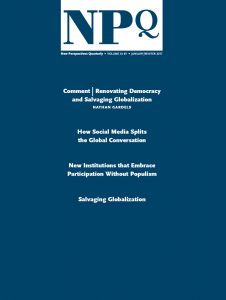The Myth of the 'Skills Gap' and the Attack on (Higher) Education
In January, President Obama became the latest in a long list of politicians and high profile public figures in taking a shot at academic disciplines perceived to be ‘useless’ from a labor market perspective. Talking about manufacturing and job training, Obama (who has since apologized for his remarks) said: “I promise you, folks can make a lot more, potentially, with skilled manufacturing or the trades than they might with an art history degree.” This attack on disciplines, fields and degrees...









